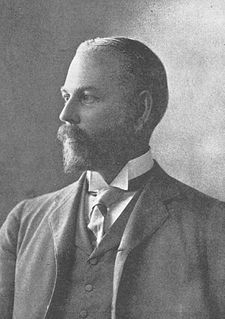A Quote by Ernest Fenollosa
All truth has to be expressed in sentences... the type of sentence in nature is a flash of lightning.
Related Quotes
Every sentence has a truth waiting at the end of it and the writer learns how to know it when he finally gets there. On one level this truth is the swing of the sentence, the beat and poise, but down deeper it's the integrity of the writer as he matches with the language. I've always seen myself in sentences. I begin to recognize myself, word by word, as I work through a sentence. The language of my books has shaped me as a man. There's a moral force in a sentence when it comes out right. It speaks the writer's will to live.
Like a flash of lightning and in an instant the truth was revealed. I drew with a stick on the sand the diagrams of my motor. A thousand secrets of nature which I might have stumbled upon accidentally I would have given for that one which I had wrestled from her against all odds and at the peril of my existence.
I was in my house, alone in the living room, anxious about you, watching the flashes of lightning. And a flash of lightning lit up this truth for me, right in front of my eye. That night i lost you, I lost something inside me. Or perhaps several things. Something central to my existence, the very support for who I am as a person
I turn sentences around. That's my life. I write a sentence and then I turn it around. Then I look at it and I turn it around again. Then I have lunch. Then I come back in and write another sentence. Then I have tea and turn the new sentence around. Then I read the two sentences over and turn them both around. Then I lie down on my sofa and think. Then I get up and throw them out and start from the beginning.
The first sentence of the truth is always the hardest. Each of us had a first sentence, and most of us found the strength to say it out loud to someone who deserved to hear it. What we hoped, and what we found, was that the second sentence of the truth is always easier than the first, and the third sentence is even easier than that. Suddenly you are speaking the truth in paragraphs, in pages. The fear, the nervousness, is still there, but it is joined by a new confidence. All along, you've used the first sentence as a lock. But now you find that it's the key.
To say that truth is not out there is simply to say that where there are no sentences there is no truth, that sentences are elements of human languages, and that languages are human creations.~ The suggestion that truth~ is out there is a legacy of an age in which the world was seen as the creation of a being who had a language his own.
Vaguely, as when you are studying a foreign language and read a page which at first you can make nothing of, till a word or a sentence gives you a clue; and on a sudden suspicion, as it were, of the sense flashes across your troubled wits, vaguely she gained an inkling into the workings of Walter's mind. It was like a dark and ominous landscape seen by a flash of lightning and in a moment hidden again by the night. She shuddered at what she saw.
The book works better if I know everything I can about the ending. Not just what happens, but how it happens and what the language is; not just the last sentence, but enough of the sentences surrounding that last sentence to know what the tone of voice is. I imagined it as something almost musical. Then you are writing toward something; you know the sound of your voice at the end of the story. That's how you want to sound in those final sentences: the degree that it is uplifting or not, the degree that it is melancholic or not.
































